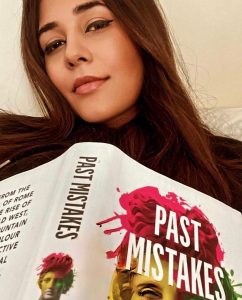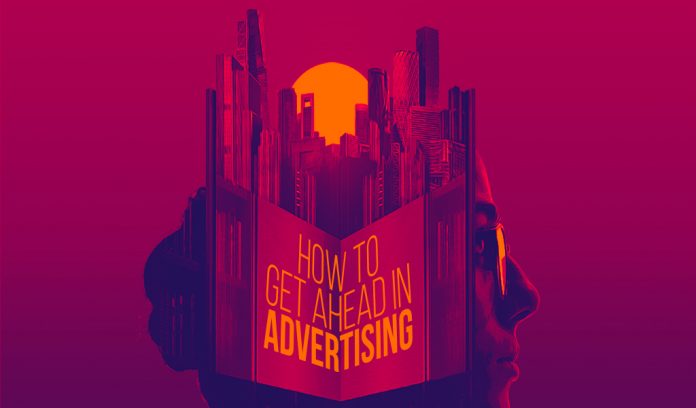It won’t surprise you to learn that Winston Churchill won the Nobel Prize. Here’s the TWIST: He won the prize not in the Peace category, as would be expected; he won it in Literature.
Stephen King incisively stated “If you don’t have the time to read, you don’t have the tools to write.” (All you fledgling Copywriters- read that one again.)
Churchill was a dazzling writer because he was a voracious reader. And he’s in good company. From our very own Jinnah (who enjoyed poetry), to Einstein and Jeff Bezos (who built his very empire on the foundation of books, lest we forget!); history is littered with evidence of great leaders being avid readers.
“Not all readers are leaders, but all leaders are readers”- Harry Truman said it too! And, because I believe the importance of reading can’t be overstated, I will go on to say some more about it and its relationship to leadership and creativity.
In any industry, being a reader gives you an undeniable edge over others because it equips you with the tools to be a better leader. But I humbly submit that this is even more true for those who choose the mad world of advertising as the route to earn their daily bread. Exponentially truer still for the (unequivocally, delightfully insane) lot who choose to be creatives.
Why? Why is it so important to read if you’re in Advertising? Especially if you’re a creative?
Because we’re in the business of communication. It’s literally our ONE job to communicate well. And a 100% proven-works-every-time-or-your-money-back-guaranteed way to develop and hone your communication skills is to read.
When I first started in advertising as an intern, I had the good fortune of reporting to a formidable ACD. When said ACD presented, everyone listened. In boardrooms and brainstorming sessions alike, when my ACD spoke, it was with a tangible sense of purpose and direction. There was a story to be told. A point to be made. A confusion to be set straight. A solution to a problem. And it was never just words thrown out into the ether like word-vomit. These were carefully constructed thoughts being judiciously communicated by a well-tuned mind. Another thing to note about said ACD – she always had a book at hand!
My next boss (who like the previous one, will remain unnamed) is one of our industry’s greatest treasures and a human dynamo. She too found the time, made the time, in her crazy-busy schedule to read. And as a young creative, I noticed like an apprentice woodworker watches the master’s hands at work – with her books, relished the conversations we would have on things we had both read and loved, and copied her shamelessly when she quoted Plato to clients. (Yes, she quoted Plato to clients! And Hemingway too!)
The creative brain needs food. Reading is manna.
Readers have more vivid imaginations than non-readers (necessary to the nature of our work).
Readers of fiction are proven to have more empathy (necessary to building healthy working relationships with clients and colleagues alike).
Readers have better coping-mechanisms for stress (and we all know how necessary this is in advertising).
These points are backed by hard science. Here’s what’s backed by personal experience:
- Readers are more engaging speakers. It’s fun to listen to a reader talk. You always feel like you’re learning something.
- Readers are treasure troves of knowledge. They can tell you about some obscure corner of the world where things happen differently. They can reveal to you some nugget of information that you may never before have thought about. They can introduce you to a world of knowledge, never before accessed by you.
- Readers are more creative, lateral thinkers. It’s a side effect of reading. The mind learns to think more abstractly. The mind learns to imagine things that don’t exist. The mind learns to paint a picture using just words (I can’t stress enough how handy this particular skill is to a creative who needs to present ideas using nothing but the power of their words).
- Readers are more disciplined and conscientious. They are used to directing their attention in a purposeful way, and seeing things through to the end. Research shows that conscientiousness is one of the biggest predictors of success in the workplace. Anything that builds that attribute is something to be looked into seriously.
In a field whose currency is good ideas, reading is a bank. A bank that offers you the currency you need, asking only for your time in return. A bargain deal.
The shortest (and most enjoyable) distance between creative ambition and its achievement is the road paved by reading.
That’s not to say that reading is the only way to build up your creative prowess. Film, music, art, theatre – any creative interest will add to your arsenal. But reading will broaden your capacity to think for yourself in a way that nothing else can, and in the field of advertising, independent lateral thinking is nothing short of a superpower.
So, young creative, I beseech thee – Read. Delve into the endlessly rewarding world of books and soar onto the wings of imagination.
“The more that you read
The more things you will know
The more that you learn
The more places you’ll go!”
-Dr Suess
ABOUT THE AUTHOR:


